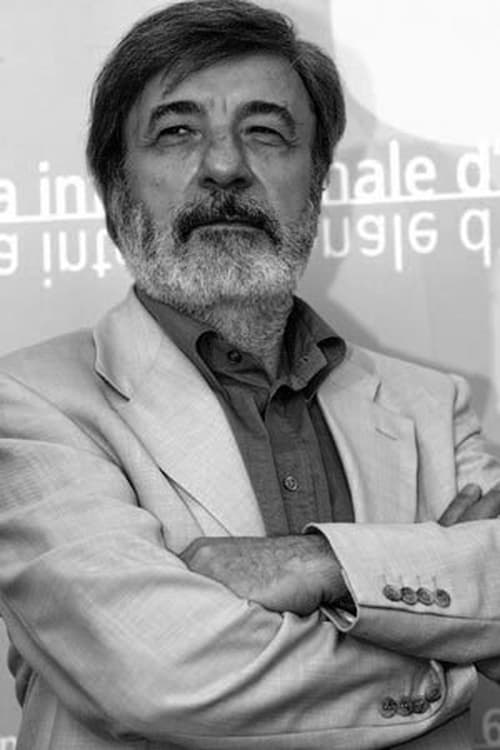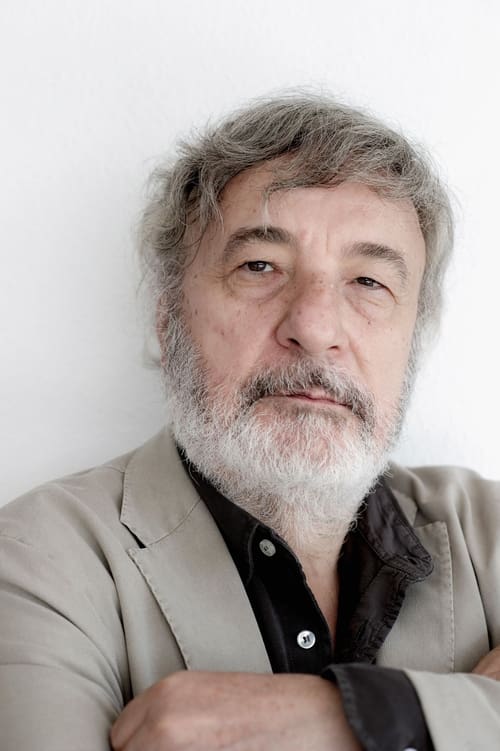
Gianni Amelio
Birth : 1945-01-20, Magisano, Catanzaro, Italy
History
Gianni Amelio (born 20 January 1945; Catanzaro) is an Italian film director. His film "The Way We Laughed" (1998) won a Golden Lion at the 55th Venice Film Festival.
Amelio was born in San Pietro di Magisano, province of Catanzaro, Calabria. His father moved to Argentina soon after his birth. He spent his youth and adolescence with his mother and his grandmother. The absence of a paternal figures will be a constant in Amelio's future works. During his university studies of philosophy in Messina, Amelio got interested in cinema, writing as film critic for a local magazine. In 1965 he moved to Rome, where he worked as operator and assistant director for figures such as Liliana Cavani and Vittorio De Seta. He also worked for television, directing documentaries and advertisements.
Amelio's first important work is the TV film "Sun City", directed in 1973 for RAI TV and inspired to Tommaso Campanella's work. This was followed by "The Cinema According to Bertolucci" (1976) a documentary about "1900" shooting, and the thriller "Special Effects" (1978). Two years later he directed the mystery "Death at Work" (1978), which won prizes at Locarno and Hyères festivals. "The Little Archimedes" of 1979 was also critically acclaimed. In 1982 he debuted for cinema proper with "Blow to the Heart" (1982), about Italian terrorism, presented at the Venice Film Festival. In 1987 Amelio released "Via Panisperna Boys", about the lives of 1930 Italian physicists such as Enrico Fermi and Edoardo Amaldi, which won the award for best screenplay at the Bari Film Festival. 1989's "Open Doors", featuring Gian Maria Volonté, confirmed Amelio's status as one of Italy's best film directors and won a nomination as Best Foreign Film at 1991 Academy Awards. The film received also four Felix, two Silver Ribbon, four David di Donatello and three Golden Globes awards. Also successful was "The Stolen Children" in 1992, which won the Special Prize of Jury at the 1992 Cannes Film Festival plus two Silver Ribbon and 5 David di Donatello. In 1994 "Lamerica", about Albanian immigration in Italy, repeated the fate and the success, with 2 Silver Ribbons and 3 Davids. Four years later, "The Way We Laughed" won the Golden Lion at the Venice Film Festival. Amelio gained another Silver Ribbon as best director for "The Keys to the House", inspired to a novel by Giuseppe Pontiggia, of 2004. Amelio was a member of jury at the Cannes Film Festival in 1995. In 2006 he released his eighth feature film, "The Missing Star", featuring Sergio Castellitto. From 2009 to 2012 he has been director of Torino Film Festival, Turin.
Amelio came out as gay late in life, shortly before the release of his 2014 documentary "Happy to be Different".

Screenplay
Based on true events of the late 60s in Italy, poet, playwright and myrmecologist Aldo Braibanti is prosecuted and sentenced to prison for the love he shares with his barely-of-age pupil and friend, Ettore. Amidst a chorus of voices of accusers, supporters and a largely hypocritical public, a single committed journalist takes on the task of piecing together the truth, between secrecy and desire, facing suspicion and censorship in the process.

Director
Based on true events of the late 60s in Italy, poet, playwright and myrmecologist Aldo Braibanti is prosecuted and sentenced to prison for the love he shares with his barely-of-age pupil and friend, Ettore. Amidst a chorus of voices of accusers, supporters and a largely hypocritical public, a single committed journalist takes on the task of piecing together the truth, between secrecy and desire, facing suspicion and censorship in the process.
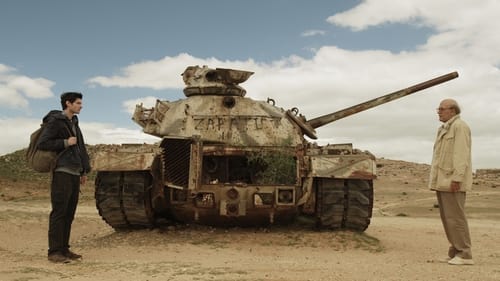
Story
The last years of Bettino Craxi, one of the most important and controversial italian leader of the 1980's.

Screenplay
The last years of Bettino Craxi, one of the most important and controversial italian leader of the 1980's.

Director
The last years of Bettino Craxi, one of the most important and controversial italian leader of the 1980's.

Self

Screenplay
A retired teacher is sitting at a table outside a bar; it’s a beautiful sunny day. The waiter brings him breakfast. Soon after a young man arrives and the teacher invites him to sit, he was waiting for him. He is dark skinned. He comes from Mali. Well dressed, serene, ready for the “game” that the teacher is playing. It’s a puzzle game where one wins when completing a crossword. But there is a variable that makes this game impossible: guessing the solutions before the question is made. Nevertheless, the young man finishes the game. Or almost…

Director
A retired teacher is sitting at a table outside a bar; it’s a beautiful sunny day. The waiter brings him breakfast. Soon after a young man arrives and the teacher invites him to sit, he was waiting for him. He is dark skinned. He comes from Mali. Well dressed, serene, ready for the “game” that the teacher is playing. It’s a puzzle game where one wins when completing a crossword. But there is a variable that makes this game impossible: guessing the solutions before the question is made. Nevertheless, the young man finishes the game. Or almost…

Director
We entered "someone else's home" with fear of being a disturbance. We didn't want to peer into a wounded territory with the eyes of the merely curious. The inhabitants of Amatrice, the few that are left, opened the door to us, greeted us without tears, offered us their hospitality and affection. One year after from earthquake, the pain is receding and people are thinking about rebuilding. But the rubble has not been cleared. It takes time, they say. And the future, perhaps, is still far away.
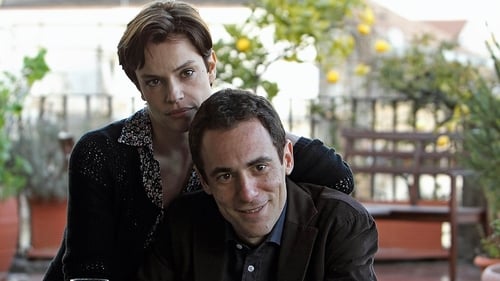
Screenplay
Back from the hospital where he has been treated after a heart attack, Lorenzo is on his way upstairs to his top-floor apartment in Naples when he meets Michela. The charming young woman, who has just moved to the facing apartment, has forgotten her keys and finds herself locked out. Cynical and grumpy, the retired lawyer who has been living estranged from the rest of the world, should normally leave her to her fate but he mellows under her spontaneous charm. He helps her, becomes friends not only with her but with her husband Fabio and their two children. For once, the self-declared misanthropist seems to be experiencing the long forgotten feeling of empathy.

Director
Back from the hospital where he has been treated after a heart attack, Lorenzo is on his way upstairs to his top-floor apartment in Naples when he meets Michela. The charming young woman, who has just moved to the facing apartment, has forgotten her keys and finds herself locked out. Cynical and grumpy, the retired lawyer who has been living estranged from the rest of the world, should normally leave her to her fate but he mellows under her spontaneous charm. He helps her, becomes friends not only with her but with her husband Fabio and their two children. For once, the self-declared misanthropist seems to be experiencing the long forgotten feeling of empathy.

Director
School registers are made to record the students' absences and grades. But not all students are equal, not all of them are given the same opportunities. In this journey lasting over a century, teachers, children, parents from every part of Italy reconstruct the history of compulsory schooling, and their personal experiences, great expectations and deeply-felt disappointments.

Director
School registers are made to record the students' absences and grades. But not all students are equal, not all of them are given the same opportunities. In this journey lasting over a century, teachers, children, parents from every part of Italy reconstruct the history of compulsory schooling, and their personal experiences, great expectations and deeply-felt disappointments.
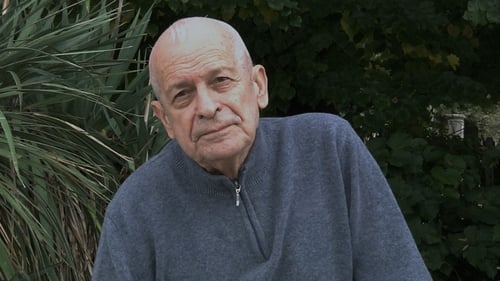
Writer
The film takes us on a voyage to a hidden Italy rarely addressed on film: Gay Italy as it was lived in the 20th century, from the turn of the century up to the 80s. The documentary gives voice to those who personally had to bear the weight of being "different", remembering how their lives were shaped by this situation during Fascism and in the aftermath of World War II, in an anthropologically and culturally widely diverse nation. Theirs is a mixed testimony of repression, censorship, dignity, courage, and happiness, making way for the final image of a world - our world - that still has a long way to go towards respect and liberty for everyone.

Director
The film takes us on a voyage to a hidden Italy rarely addressed on film: Gay Italy as it was lived in the 20th century, from the turn of the century up to the 80s. The documentary gives voice to those who personally had to bear the weight of being "different", remembering how their lives were shaped by this situation during Fascism and in the aftermath of World War II, in an anthropologically and culturally widely diverse nation. Theirs is a mixed testimony of repression, censorship, dignity, courage, and happiness, making way for the final image of a world - our world - that still has a long way to go towards respect and liberty for everyone.

Story
A meek middle-aged man takes on every conceivable temporary job in order to feel useful and keep his dignity—until something shakes his inexhaustible optimism.

Screenplay
A meek middle-aged man takes on every conceivable temporary job in order to feel useful and keep his dignity—until something shakes his inexhaustible optimism.

Director
A meek middle-aged man takes on every conceivable temporary job in order to feel useful and keep his dignity—until something shakes his inexhaustible optimism.
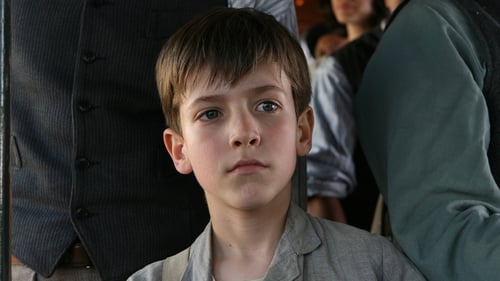
Writer
Based on a novel that Albert Camus was working on when he died, we follow Jacques Comery as he travels back to Algeria in 1957, a place full of childhood memories. The country is split between those wanting to remain a part of France, and those demanding independence. Reminiscences of his mother, his stern grandmother and a young Arab boy come flooding back.

Director
Based on a novel that Albert Camus was working on when he died, we follow Jacques Comery as he travels back to Algeria in 1957, a place full of childhood memories. The country is split between those wanting to remain a part of France, and those demanding independence. Reminiscences of his mother, his stern grandmother and a young Arab boy come flooding back.
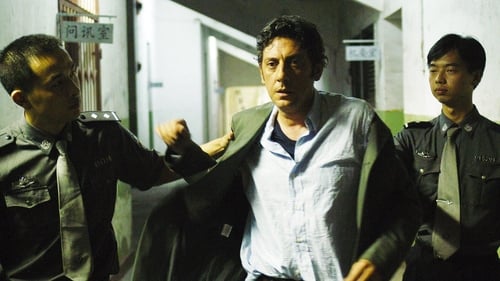
Story
Vincenzo, former head of maintenance of a steel plant that's been outsourced, travels from Italy to China to warn about a defective blast furnace.

Screenplay
Vincenzo, former head of maintenance of a steel plant that's been outsourced, travels from Italy to China to warn about a defective blast furnace.

Director
Vincenzo, former head of maintenance of a steel plant that's been outsourced, travels from Italy to China to warn about a defective blast furnace.
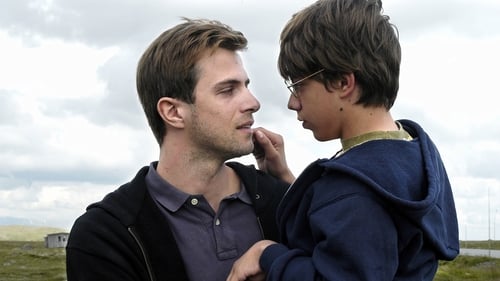
Director
Meeting his handicapped son for the first time, a young father attempts to forge a relationship with the teenager.

Writer
Studying to become a teacher in 1950s Northern Italy, Sicilian immigrant Pietro is joined by his older brother Giovanni. While Giovanni is an illiterate worker, Pietro shows considerable promise in his field, prompting the elder sibling to take on even the toughest jobs in order to support his brother's academic pursuits.

Director
Studying to become a teacher in 1950s Northern Italy, Sicilian immigrant Pietro is joined by his older brother Giovanni. While Giovanni is an illiterate worker, Pietro shows considerable promise in his field, prompting the elder sibling to take on even the toughest jobs in order to support his brother's academic pursuits.
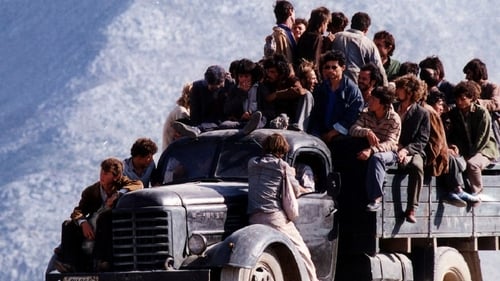
Story
Fiore, an Italian conman, arrives in post Communist Albania with Gino, his young apprentice, to set up a shoe factory that will never open. The con requires a native Albanian, so they designate Spiro, an impoverished and confused former political prisoner as chairman of the board. When Fiore returns to Italy to get government funds for the project, Spiro unexpectedly disappears and Gino sets out on a journey to find him. The search leads him to discover Spiro's tragic personal history and witness Albanian poverty firsthand.

Screenplay
Fiore, an Italian conman, arrives in post Communist Albania with Gino, his young apprentice, to set up a shoe factory that will never open. The con requires a native Albanian, so they designate Spiro, an impoverished and confused former political prisoner as chairman of the board. When Fiore returns to Italy to get government funds for the project, Spiro unexpectedly disappears and Gino sets out on a journey to find him. The search leads him to discover Spiro's tragic personal history and witness Albanian poverty firsthand.

Director
Fiore, an Italian conman, arrives in post Communist Albania with Gino, his young apprentice, to set up a shoe factory that will never open. The con requires a native Albanian, so they designate Spiro, an impoverished and confused former political prisoner as chairman of the board. When Fiore returns to Italy to get government funds for the project, Spiro unexpectedly disappears and Gino sets out on a journey to find him. The search leads him to discover Spiro's tragic personal history and witness Albanian poverty firsthand.
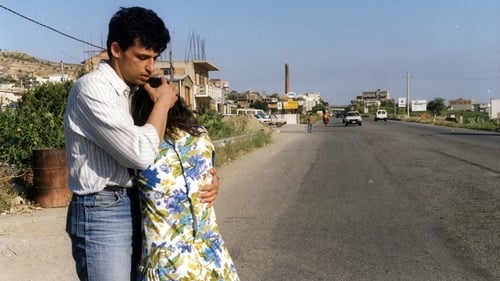
Director
Antonio, a policeman (carabiniere), has an order to take two children (Rosetta and her brother Luciano) from Milan to Sicily to an orphanage. Their mother has been arrested for forcing Rosetta (11 years old) to work as a prostitute. First the relation between Antonio and the children is tough, but it relaxes so they become temporary friends.
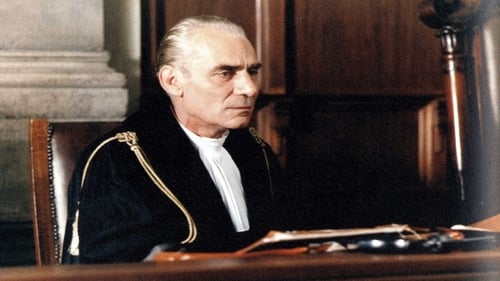
Screenplay
Tommaso Scalia is a man who commits three murders: he kills his superior who sacked him, the man who replaced him and his wife. He wants a quick trial and an early execution, but an earnest, principled assistant judge looks for a way to save the murderer from being shot, because he does not belive in capital punishment.

Director
Tommaso Scalia is a man who commits three murders: he kills his superior who sacked him, the man who replaced him and his wife. He wants a quick trial and an early execution, but an earnest, principled assistant judge looks for a way to save the murderer from being shot, because he does not belive in capital punishment.

Writer
The enthusiasms, fears, joys and disappointments of the (private and professional) life of a well-known group of boys fond of physics and mathematics, who just made history as the Via Panisperna boys.

Director
The enthusiasms, fears, joys and disappointments of the (private and professional) life of a well-known group of boys fond of physics and mathematics, who just made history as the Via Panisperna boys.
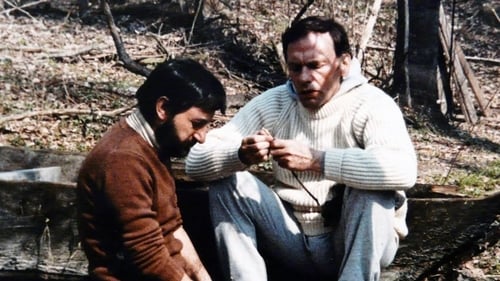
Story
The son of a university professor discovers his father's secret life and has to decide what to do about it.

Director
The son of a university professor discovers his father's secret life and has to decide what to do about it.
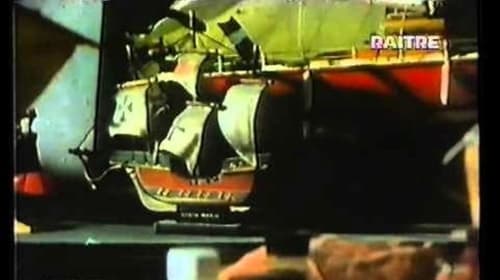
Director
After a kidnapping a boy is kept in the family castel to protect him. But the situation is not easy

Screenplay
The action takes place in Florence in the 1930s. Alfred, an Englishman who moved to that city in order to write a book on Giotto, meets a boy who is fond of music and mathematics, with whom he becomes close friends. Alfred goes to Switzerland, but one day he receives an anguished letter from the boy and rushes back to Florence where he learns some terrible news.

Director
The action takes place in Florence in the 1930s. Alfred, an Englishman who moved to that city in order to write a book on Giotto, meets a boy who is fond of music and mathematics, with whom he becomes close friends. Alfred goes to Switzerland, but one day he receives an anguished letter from the boy and rushes back to Florence where he learns some terrible news.

Director
A horror film director, now forgotten, invites a young author who wrote the screenplay for a film, “Effetti speciali”. As long as he is remembered, the director is willing to do anything.

Writer
A young man moves to an apartment where an actor has just committed suicide. There is a room with cabinets full of theatrical objects and posters of old films. A child spies on him and in the house opposite a girl haunts him.

Director
A young man moves to an apartment where an actor has just committed suicide. There is a room with cabinets full of theatrical objects and posters of old films. A child spies on him and in the house opposite a girl haunts him.
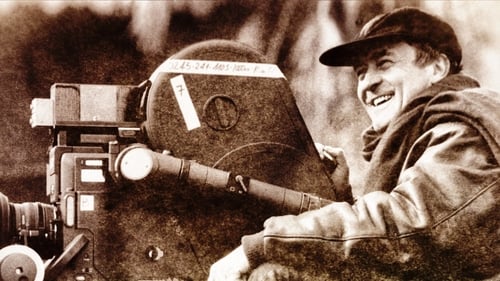
Director
Documentary on the filming of Novecento by Bernardo Bertolucci

Director
1600, Southern Italy is under the Spanish Government. A few years before an attempt at rebellion, inspired by the preaching of the philosopher and monk Tommaso Campanella, is severely quelled by the Government. Tommaso Campanella, under the charge of the plot, is put into a prison in Naples and waits for the conclusion of an endless process. Throughout the Calabrian countries his name is wrapped up in legend, he becomes almost a myth. Someone believes he has escaped from prison and wanders about under a false name.

l'accompagnatore
One of the first tv-movie of Gianni Amelio: a journalistic investigation about boys of Calabria.

Director
One of the first tv-movie of Gianni Amelio: a journalistic investigation about boys of Calabria.
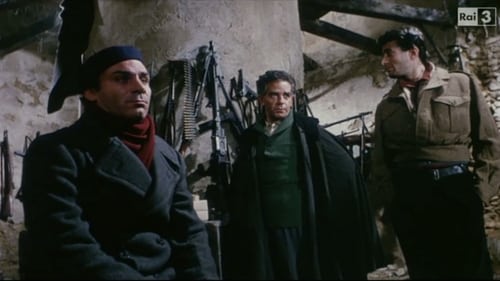
First Assistant Director
The story of the Cervi family. Rural farmers brought up to be idealogically opposed to fascism during the era of Mussolini's rule of Italy and World War 2.
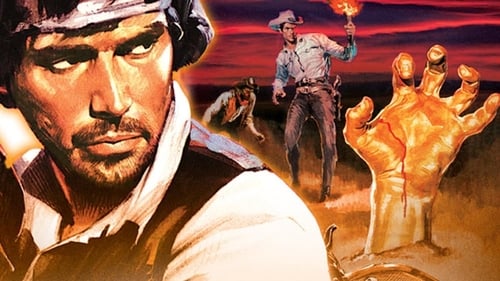
Assistant Director
A Mexican outlaw known as "The Stranger" is part of a band of thieves that steal a cargo of gold from a stagecoach. However, the Americans in the band betray him, and shoot all the Mexicans. The Stranger is not completely dead though, and crawls his way out of his shallow grave, continuing his pursuit of the gold, and exacting a bloody vengeance.
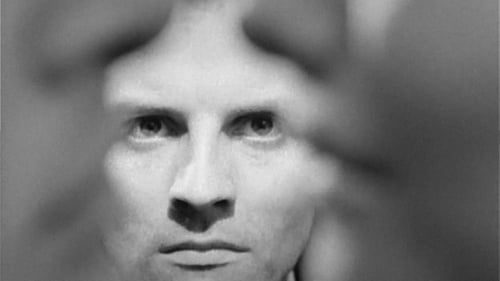
Script Supervisor
A young writer descends into madness. Alienated, neurotic, and plagued by guilt, Michele retreats from reality, loses interest in work, and comes to the brink of suicide before being sent to an asylum for shock therapy. Escaping from the asylum, Michele returns to his boyhood home, where he learns the reasons for his present mental state.

